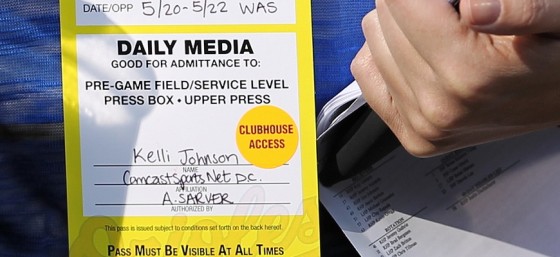
I had the pleasure of presenting Social Media Horror Stories (and How to Avoid the Same Fate) at the Arizona Technology Council Lunch and Learn this week. For those of you who weren’t there, I got to tell the stories of major missteps companies and individuals have committed with their social media activities and how to avoid the same mistakes. In every situation, the problems could have been avoided or mitigated with proper education, forethought, and applying common sense.
This is my recommended follow-up plan for attendees:
Register Your Trademarks
To avoid problems with your competition, register the name of your company, products, blog, logo, and/or tagline with the U.S. Patent and Trademark Office. Without registration, the law only protects your right to use your trademarks in your established geographic market (which can be challenging to discern when your business is 100% online). You don’t want to find yourself in the Burger King situation where your market is limited or the Turner Barr situation where your business is essentially shut down because someone else registered your mark.
Before you launch your next company, product, or marketing campaign, be sure to check the Trademark Office’s database to make sure that someone else doesn’t already have the exclusive rights to use your desired trademark.
Check Your Contracts
If you outsource any of your content creation or marketing activities, review your contracts carefully. Look for information about who owns the social media accounts and any content created on your behalf. Also look for provisions that address potential problems and whether you will be indemnified if you’re sued or get in trouble because of something a third party did on your behalf.
Remember that website terms of service are also contracts. Make sure you understand the implications of using a social media platform or web-based service. Your site may also have terms of service that manage your relationships with your users. Make sure they’ve been written to suit your needs.
Be Careful About Copyrights
When a person owns a copyright in text or an image, they have the exclusive right to control where they work is copied, distributed, and displayed. If you want to use their work, you often need to obtain permission or risk being accused of copyright infringement. I frequently see people pulling images from search engine results without considering the artist’s rights. Many people think they can use whatever they want as long as they give an attribution and link back to the original, and that’s just not true. If you’re looking for images for your site, consider using Creative Commons. I always use images that come with the license that allows me to modify and commercialize the artist’s work.
When it comes to your own copyrights, decide in advance how you want to react when someone steals your work and plan accordingly.
Check Your Social Media Policy
I’m an advocate for the idea that companies should generally leave their employees alone when they’re on their own time, including what they do on social media. However, I’m also a huge proponent of the idea that every company needs a social media policy. Employees need to understand what their dos and don’ts are when it comes to their personal profiles and blogs, and employers need to understand that their social media policy needs to comply with the National Labor Relations Act. If your policy prohibits employees from saying anything damaging about the company online, it’s likely illegal and if you fire someone for violating an illegal policy, you could easily face tens of thousands of dollars in legal fees and damages. This is an area of law that is still developing, so please have lawyer help you write your policy so it complies with the law.
Review Your Crisis Response Plan
For most companies, the question isn’t if it will face a crisis, but when. Every company should have plans in place for dealing with expected problems, including pre-writing content for the media and social media, so what when an problem occurs, everyone knows what their role and the protocol that everyone will be following. When you’re having your planning sessions, it’s a good idea to have your legal counsel present to assist from a legal perspective.
If you want a resource for you or your staff regarding the legalities of social media, please check out my book, The Legal Side of Blogging: How Not to get Sued, Fired, Arrested, or Killed. If you’re interested in guerilla marketing, my book on Flash Mob Law will be available on Amazon in June 2014.
If you want to talk more about social media law, you can connected with me on Twitter, Facebook, YouTube, LinkedIn, or you can email me. You can also subscribe to the Carter Law Firm newsletter.
Please visit my homepage for more information about Carter Law Firm.











